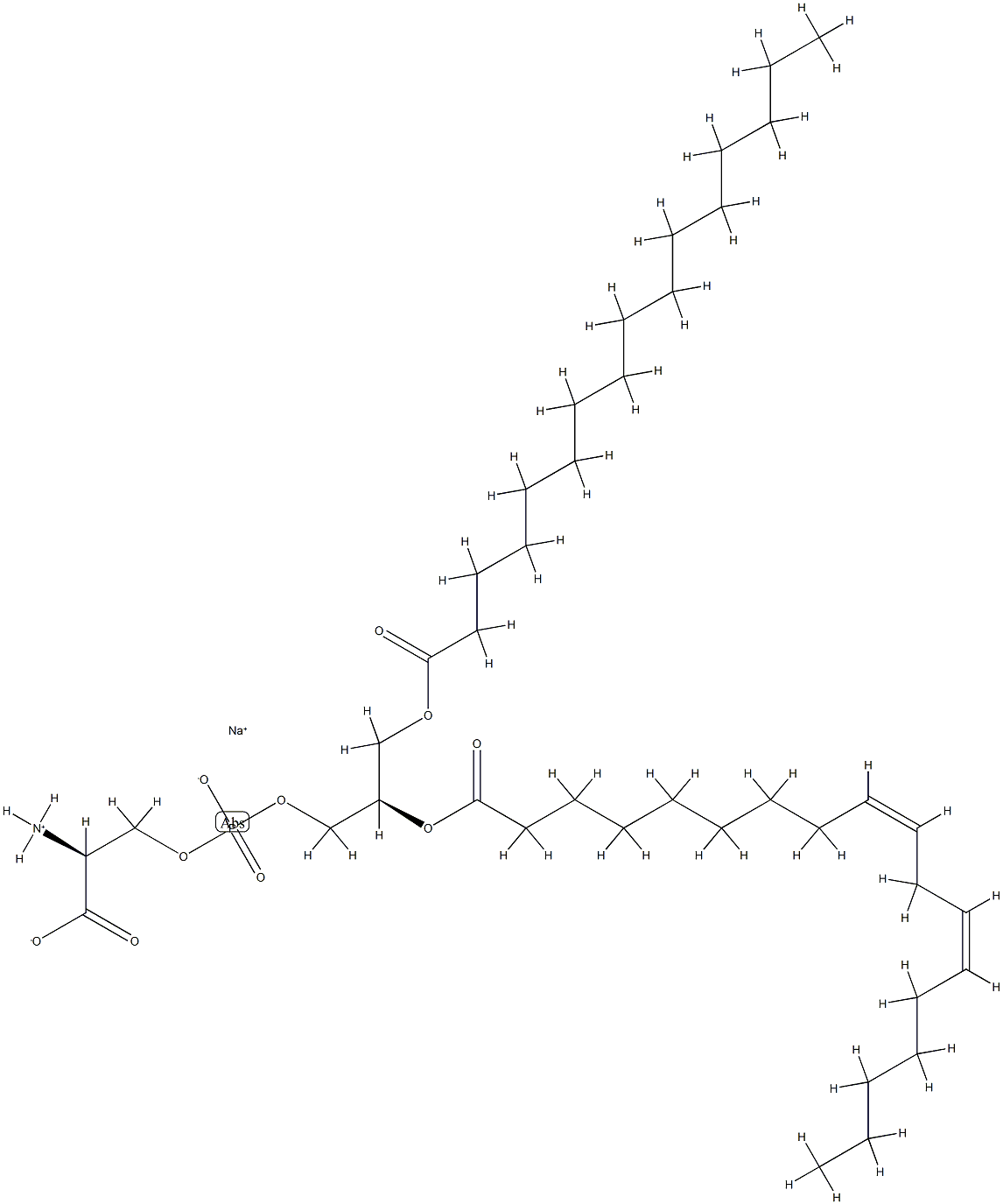L-ALPHA-LYSOPHOSPHATIDYLCHOLINE, SOYBEAN
- CAS NO.:97281-38-4
- Empirical Formula: C24H50NO7P
- Molecular Weight: 495.630061
- MDL number: MFCD00131444
- Update Date: 2023-05-04 17:34:44

What is L-ALPHA-LYSOPHOSPHATIDYLCHOLINE, SOYBEAN?
The Uses of L-ALPHA-LYSOPHOSPHATIDYLCHOLINE, SOYBEAN
Soy Lyso PC has been used in the synthesis of 15-methylhexadecanoic acid (15-MHDA) and glycerophospholipids.
Definition
ChEBI: 1-hexadecanoyl-sn-glycero-3-phosphocholine is a lysophosphatidylcholine 16:0 in which a hexadecanoyl (palmitoyl) group is attached to the glycero moiety at position 1. It has a role as a mouse metabolite. It is a lysophosphatidylcholine 16:0 and a 1-O-acyl-sn-glycero-3-phosphocholine.
General Description
Lyso Phosphatidylcholine (LPC) or lysolecithin is a minor phospholipid in plasma (8-12%) and cellular membranes (<3%).
Biochem/physiol Actions
Soy Lyso phosphocholine or phosphotidylcholine (PC) is among the other lipids present in soybean lecithin. Lysophosphatidylcholine (LPC) is a bioactive proinflammatory lipid. It is generated during pathological activities and is implicated in atherosclerosis and inflammatory diseases. LPC modifies the functions of numerous cell-types, including smooth muscle cells, endothelial cells, macrophages, monocytes, and T-cells. LPC activates several second messengers and is involved in signal transduction mechanisms.
Properties of L-ALPHA-LYSOPHOSPHATIDYLCHOLINE, SOYBEAN
| storage temp. | -20°C |
Safety information for L-ALPHA-LYSOPHOSPHATIDYLCHOLINE, SOYBEAN
Computed Descriptors for L-ALPHA-LYSOPHOSPHATIDYLCHOLINE, SOYBEAN
New Products
Tert-butyl bis(2-chloroethyl)carbamate 4-Methylphenylacetic acid N-Boc-D-alaninol N-BOC-D/L-ALANINOL 3-Morpholino-1-(4-nitrophenyl)-5,6-dihydropyridin- 2(1H)-one Furan-2,5-Dicarboxylic Acid Tropic acid DIETHYL AMINOMALONATE HYDROCHLORIDE 1,1’-CARBONYLDIIMIDAZOLE R-2-BENZYLOXY PROPIONIC ACID 1,1’-CARBONYLDI (1,2-4 TRIAZOLE) N-METHYL INDAZOLE-3-CARBOXYLIC ACID (2-Hydroxyphenyl)acetonitrile 4-Bromopyrazole 5-BROMO-2CYANO PYRIDINE 5,6-Dimethoxyindanone 5-broMo-2-chloro-N-cyclopentylpyriMidin-4-aMine 2-(Cyanocyclohexyl)acetic acid 4-methoxy-3,5-dinitropyridine 2-aminopropyl benzoate hydrochloride 1-(4-(aminomethyl)benzyl)urea hydrochloride diethyl 2-(2-((tertbutoxycarbonyl)amino) ethyl)malonate tert-butyl 4- (ureidomethyl)benzylcarbamate Ethyl-2-chloro((4-methoxyphenyl)hydrazono)acetateRelated products of tetrahydrofuran








You may like
-
 Soy Lyso PC CAS 97281-38-4View Details
Soy Lyso PC CAS 97281-38-4View Details
97281-38-4 -
 1975-50-4 98%View Details
1975-50-4 98%View Details
1975-50-4 -
 2-HYDROXY BENZYL ALCOHOL 98%View Details
2-HYDROXY BENZYL ALCOHOL 98%View Details
90-01-7 -
 2-Chloro-1,3-Bis(Dimethylamino)Trimethinium Hexafluorophosphate 221615-75-4 98%View Details
2-Chloro-1,3-Bis(Dimethylamino)Trimethinium Hexafluorophosphate 221615-75-4 98%View Details
221615-75-4 -
 61397-56-6 CIS BROMO BENZOATE 98%View Details
61397-56-6 CIS BROMO BENZOATE 98%View Details
61397-56-6 -
 14714-50-2 (2-Hydroxyphenyl)acetonitrile 98+View Details
14714-50-2 (2-Hydroxyphenyl)acetonitrile 98+View Details
14714-50-2 -
 118753-70-1 98+View Details
118753-70-1 98+View Details
118753-70-1 -
 733039-20-8 5-broMo-2-chloro-N-cyclopentylpyriMidin-4-aMine 98+View Details
733039-20-8 5-broMo-2-chloro-N-cyclopentylpyriMidin-4-aMine 98+View Details
733039-20-8